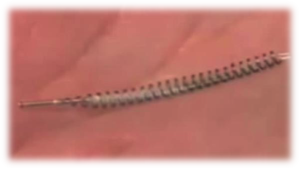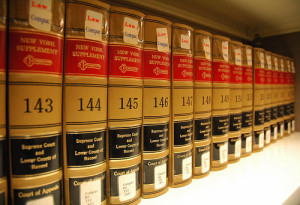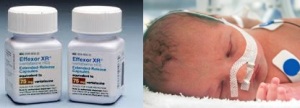Mounting number of Essure lawsuit claims and reports citing thousands of injury and death incidents linked to the birth control device have led to increasing demand for its market withdrawal. In a show of support, the members of the Congress have written to the FDA to consider revoking the approval given to Essure birth control. MedWatch reports cite over 5,000 Essure injuries, including abdominal pain, menstrual disorders, internal organ injuries, infection, bleeding, fallopian tube perforation and death. In 2012, there were about 100 Essure injury complaints. Two years later, the complaints grew 20 fold to reach 2,259. More than 23,000 “women who had the Essure procedure done, and are suffering or have suffered from side effects which may be attributed to Essure” are members of a Facebook group called Essure Problems.
Congress To Facilitate Essure Birth Control Recall
Amid hundreds of potential Essure lawsuit claims being evaluated by Essure attorneys nationwide, Penn State Representative Mike Fitzpatrick has announced his intention of introducing a bill in the Congress to facilitate recall of the transvaginal contraceptive from the US market. The bipartisan bill includes provisions seeking “revocation of the pre-market approval given by FDA to Essure’s original developer, Conceptus, in 2002.” This will force Bayer to withdraw Essure.
The proposed bill is supported by Connecticut Congresswoman Rosa DeLauro, a vocal critic of the contraceptive device and at the forefront of demand to recall Essure transvaginal device. She wrote to the FDA in October 2015 citing “a citizen petition filed on behalf of hundreds of women injured by Essure” urged “the FDA to take immediate action and remove the device from the market.”
DeLauro also asked the agency a number of pointed questions about how the hearing was conducted, seeking information on why a panel of women who had actually participated in the Essure clinical trials were not allowed to report to the panel. Had they been allowed, according to DeLauro, their public testimony would have indicated that Essure’s sponsors changed patient ages and information on the Essure complications they suffered when they submitted the data to the FDA for approval.
DeLauro also noted that independent experts were not given sufficient time, and that the FDA has only posted 11 out of more than three thousand comments submitted to the docket of the citizen’s petition calling for an Essure recall.
“Essure’s benefits do not outweigh its risks, and it should be withdrawn from the market,” DeLauro said. “If well-designed studies in the future indicate that the benefits outweigh the risks compared to alternative permanent or long-term contraception, the FDA can consider approving Essure at that time.”
Her letter came in support of consumer groups calling for withdrawal of the FDA approval to the contraceptive citing increasing number of lawsuits claiming Essure injuries. In 2014, a Congressional hearing on the transvaginal device demanded change to FDA approval process so as to facilitate filing of product liability lawsuit against medical device makers.
FDA Panel Recommends More Safety Research
The FDA Obstetrics and Gynecology Devices Advisory Panel, which met on September 24, also recommended more research on Essure safety data. The first such meeting on the contraceptive in 13 years of its approval, it was attended by over two dozens of women subject to Essure side effect injuries. All victims strongly demanded the withdrawal of the product. Their disposition forced the panel members to express concern over inadequate safety data related to the birth control device and question the manufacturer about shortcomings during clinical trials. A FDA report published prior to the panel meet acknowledged the existence of “very little reliable post-marketing data by independent researchers to support whether Essure is working in the real world, as it did in pre-market clinical trials.”
Hundreds of Essure lawsuit claims by women are being evaluated by lawyers across the United States for potential product liability damages. A number of cases have already been filed seeking compensations. Contact our Essure injury attorney or call on 1-800-632-1404 to explore options for filing Essure injury lawsuits and seek compensation and damages for suffering from complications associated with the birth control device.







